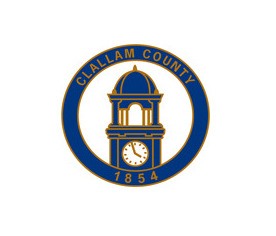September 21-25, 2015 is SepticSmart Week—a week during which the Clallam County Environmental Health Section joins the Environmental Protection Agency (EPA) and Governor Jay Inslee in reminding homeowners and communities about the importance of caring for and maintaining their septic systems.
Governor Jay Inslee’s proclamation declaring SepticSmart Week, underscores the importance of maintaining the almost 1 million septic systems operating in Washington — including about 16,000 in Clallam County.
Failure to maintain a septic system can lead to backups and overflows, which can result in costly repairs.
Additionally, septic systems that are poorly sited, designed, installed, operated or maintained can cause health and water quality problems, including:
• Contamination of surface waters and ground water with disease-causing pathogens and nitrates
• Contamination of shellfish beds and swimming beaches by pathogens
• Excessive nitrogen discharges to sensitive coastal waters
• Phosphorus pollution of inland surface waters
• More algae growth and lowered oxygen levels in the water
During SepticSmart Week, the EPA provides homeowners with easy to remember septic maintenance tips, including:
• Protect It and Inspect It: Homeowners should have their system inspected. In Clallam County gravity systems must be inspected every three years; all other systems inspected annually. Pumping is not the same as an inspection. Tanks should be pumped when necessary, typically every three to five years.
• Think at the Sink: Avoid pouring fats, grease and solids down the drain. These substances can clog a system’s pipes and drainfield.
• Don’t Overload the Commode: Only put things in the drain or toilet that belong there. For example, coffee grounds, dental floss, disposable diapers and wipes, feminine hygiene products, cigarette butts and cat litter can all clog and potentially damage septic systems.
• Don’t Strain Your Drain: Be water efficient and spread out water use. Fix plumbing leaks and install faucet aerators and water-efficient products. Spread out laundry and dishwasher loads throughout the day — too much water at once can overload a system that hasn’t been pumped recently.
• Shield Your Field: Remind guests not to park or drive on a system’s drainfield, where the vehicle’s weight could damage buried pipes or disrupt underground flow.
At the River Festival
Septic system owners are invited to have their septic questions answered at the Dungeness River Festival at Railroad Bridge Park in Sequim on Sept. 25 and 26 as we celebrate SepticSmart Week. Clallam County Environmental Health Section is also offering Septics 101 (Septics Maintenance) and Septics 201 (Do-It-Yourself Septic Inspection) classes this October.
The Septics 101 class is scheduled for Oct. 7 and Septics 201 on Oct. 2o. Both will be held at the Dungeness River Audubon Center at Railroad Bridge Park · 2151 West Hendrickson Road, Sequim.
Classes
Septics 101 and 201 classes are free to Clallam County residents.
The Septic 101 class provides homeowners with an overview of the What, Why & How of septic system maintenance.
The Septic 201 provides homeowners an overview of the What, Why, & How of safely inspecting your septic system and includes an instructional video, a brief demonstration, and a short exam.
Not all septic systems are eligible for homeowner inspection, and systems located in the Marine Recovery Area (between Bagley Creek watershed and east to the county boundary) must first be inspected by a licensed septic inspector.
Space is limited so pre-registration is required for Septics 101 and 201; register online at www.clallam.net under Online Services or by contacting Environmental Health at 417-2506.
For more information on septic systems and being SepticSmart, visit www.clallam.net/septic and www.epa.gov/septicsmart.



